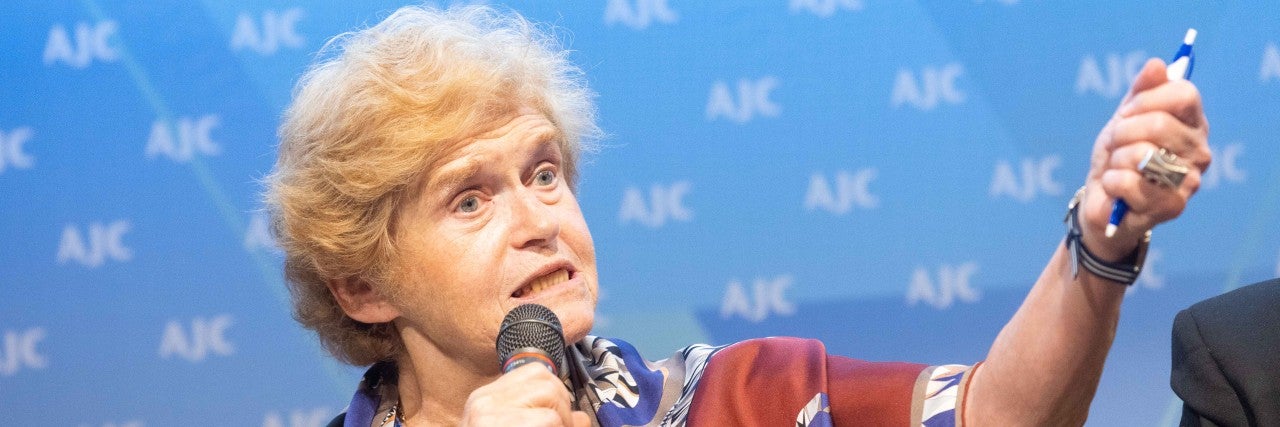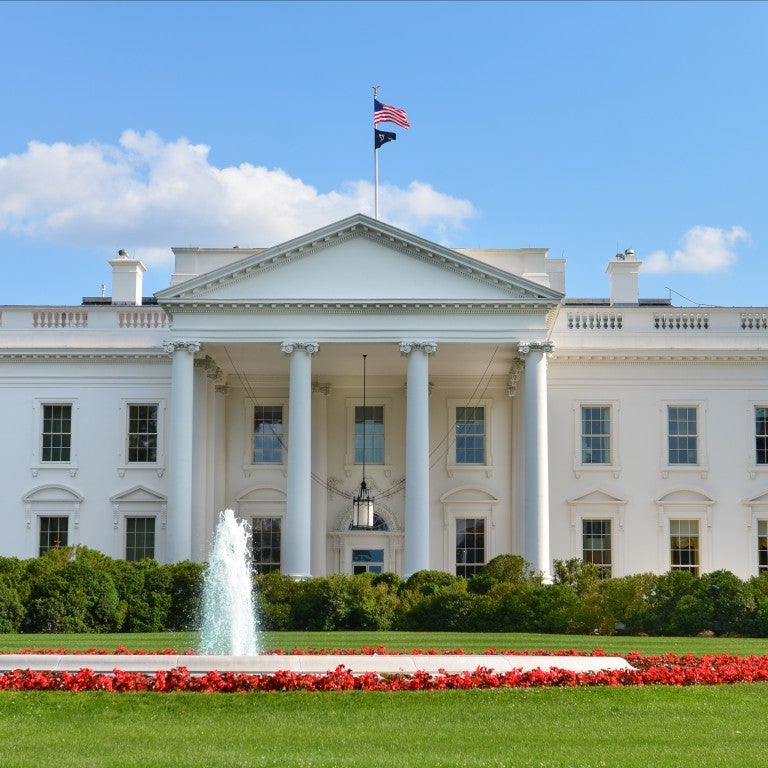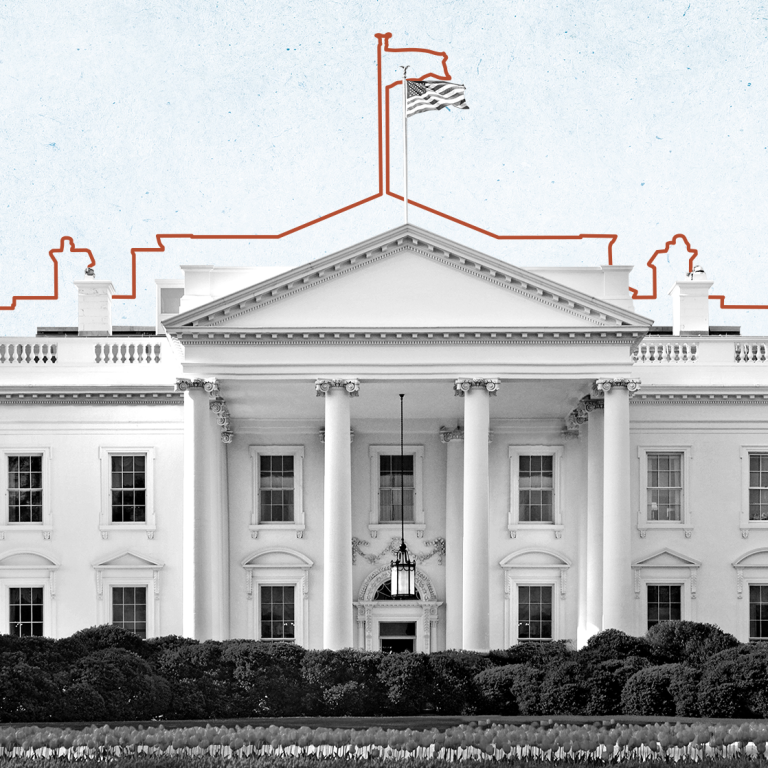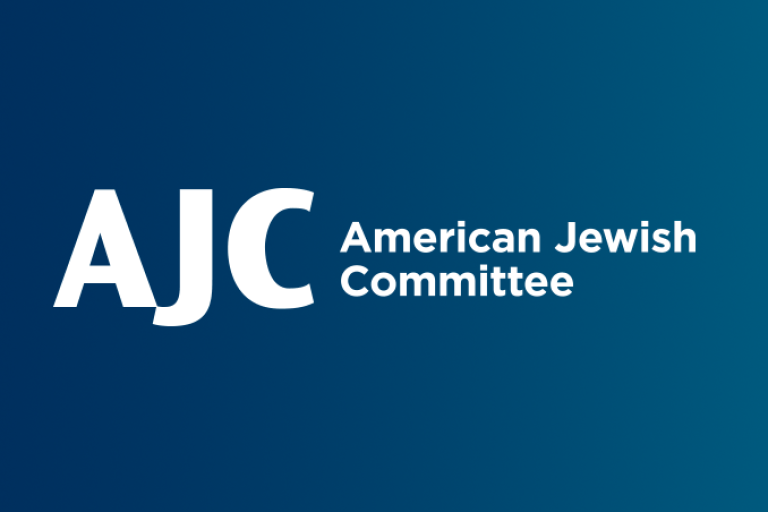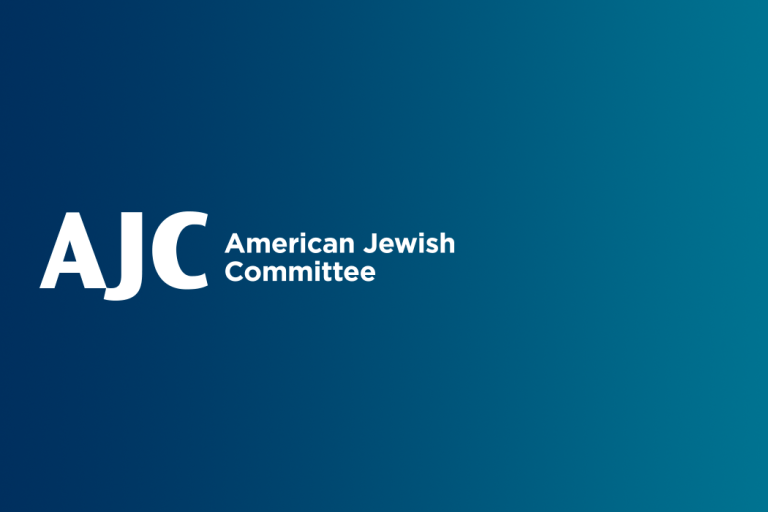September 14, 2023
Ambassador Deborah Lipstadt, the U.S. Special Envoy to Monitor and Combat Antisemitism, joins us to discuss how she’s settled into her new role and shares insights on the development of the new U.S. National Strategy to Counter Antisemitism, for which AJC has long advocated. Lipstadt, a renowned Holocaust historian and one of Time Magazine's Most Influential People of 2023, also delves into the ways in which the Abraham Accords have contributed to the fight against antisemitism in the Middle East. Additionally, she provides an insider's look into the challenges and progress associated with addressing antisemitism and how the National Strategy factors in.
*The views and opinions expressed by guests do not necessarily reflect the views or position of AJC.
Episode Lineup:
- (0:40) Deborah Lipstadt
Show Notes:
Go Deeper:
Read:
- Everything You Need To Know About The U.S. National Strategy To Counter Antisemitism And AJC's Task Force
- Honoring International Antisemitism Envoys AJC David Harris Award
Listen:
Follow People of the Pod on your favorite podcast app, and learn more at AJC.org/PeopleofthePod
You can reach us at: peopleofthepod@ajc.org
If you’ve enjoyed this episode, please be sure to tell your friends, tag us on social media with #PeopleofthePod, and hop onto Apple Podcasts to rate us and write a review, to help more listeners find us.
Transcript of Interview with Deborah Lipstadt:
Manya Brachear Pashman:
Deborah Lipstadt, US Special Envoy to Monitor and Combat Antisemitism is a renowned Holocaust historian, recognized earlier this year as one of Time Magazine's Most Influential People of 2023. She has written eight books, and four years ago, advised the United Nations on its unprecedented report on global antisemitism. In fact, she joined us on this podcast shortly after the report's release. Since then, she has joined the US State Department in a role that for the first time carries the rank of Ambassador. She joins us again this time in our popup Tel Aviv studio. Ambassador, welcome to People of the Pod.
Deborah Lipstadt:
Thank you.
Manya Brachear Pashman:
America's National Strategy to Counter Antisemitism was adopted in May. Your job primarily deals with US Foreign policy to combat antisemitism. But how does this new domestic strategy affect your work?
Deborah Lipstadt:
Well, it affects our work and that certainly I was consulted and worked closely with the White House in the shaping of it, my team played a part in helping to shape it people to reach out to and things like that. And there are over 24 agencies involved including the State Department, we're now looking at all the other national strategies to see best practices, what America could possibly adopt. And of course, informally, I'm the administration's most knowledgeable person on antisemitism. So they turned to me quite often for advice, for ideas, etc.
Manya Brachear Pashman:
Okay. All right. Well, so as I said, your role is more international. Do you need a domestic counterpart? Does the United States need a domestic antisemitism czar?
Deborah Lipstadt:
I'm not sure. It's a lot on–the strategy is really run out of the Domestic Policy Council, which until about a week ago, was headed by Ambassador Susan Rice, who was greatly responsible for seeing this thing come to fruition. And we'll see how it works. It's up to them to decide how they want to do it. But I think it's also good that each agency from the usual suspects, as I like to say, homeland security, education, FBI, law enforcement, are involved, but so are so many others. Small Business Administration, Veterans Affairs, Smithsonian, all looking at ways to counter antisemitism, make sure there aren't barriers that are there, whether because of antisemitism or just ignorance.
Manya Brachear Pashman:
And second gentleman Doug Emhoff has been certainly--
Deborah Lipstadt:
Even before I was sworn in, after I was confirmed, I was in Washington and he asked me if I would come in and visit with him. We had a wonderful visit. We’re in touch all the time. And he really feels this very deeply. And I give him great credit because he could easily have said, Look, I'm the first Jew in this position. First second gentleman. We put up a mezuzah for the residence. We have a Hanukkah party. We have a Seder. We do other things. Don't ask me to take the lead on this. But he's taken the lead. He's traveled all over, he traveled with me to Poland and Germany, where I coordinated a meeting for him with other special envoys, just to give him a sense of what other countries were doing.
And I think when he and his staff and other people in the White House who were with us saw that, it sort of energized them to say, my God, other countries have taken this really seriously. They're way ahead of us. We have to do something serious as well.
Manya Brachear Pashman:
You know, with that in mind, I mean, if you think about it, your predecessors in this position have kind of made it their business to monitor, sound the alarm about antisemitism in Europe, elsewhere around the world. AJC helped convene that group of envoys at the White House.
And so in many ways, the table's turned a little bit in terms of, you know, instead of the United States monitoring and sounding the alarm, these envoys came and advised the United States. Has this kind of mutual mission actually improved the relationship with some of these countries?
Deborah Lipstadt:
It's improved the relationship tremendously. We really work as a team, not as a team–each one has its own you know, position, certain things one can get involved in certain things. You know, I lurk and watch what's going on, but I'm not involved in it. But one of the first things I did in fact, it was the same day as last year's AJC Global Forum, which was in New York, I think, at Temple Emanuel. And I was on the stage with Katrina von Schnurbein, the amazing EU envoy on Countering Antisemitism and Enhancing Jewish Life. And then she and I left the meeting with Mr. Lottenberg, Fernando Lottenberg, who's the OAS Special Envoy, and we met with a group of us of special envoys met to talk about how we could work together.
And so we've been meeting and convening. Katrina convened something that the EU others have convened, and then we meet, you know, sometimes we'll meet through the auspices, let's say, we'll be meeting here because many have come for AJC. But it is a government to government when we meet, it's not, convened by someone else. But it's people who speak for their governments coming together, which is quite amazing.
I've had great predecessors in this job. They're all terrific. And were strong supporters of me taking the position, very excited about it from both sides of the aisle. And I'm very grateful for that. But there are differences. First of all, Congress elevated the position to an ambassador before I was in the picture.
So it wasn't for me. And that carries weight in the world of protocol. That means you speak for the President. I see what weight it carries. In fact, I was just in conversation with a Republican senator, around the time of the rollout, because I was briefing him about the national strategy.
And he had been one of those who had pushed for the elevation of it to be an ambassador. And I said, you know, when I first heard you were doing this, I said, Oh, doesn't really matter. I said, I was wrong, you were right. It really enhances the importance, and it shows how America takes this seriously. But my predecessors, certainly amongst the earlier ones, we were the first country to have a position like this. So when something happened in France, and Belgium and Germany, whatever, they would go, and they would say to the government, you know, we take this very seriously, and we think you should take it seriously.
Or if they were taking it seriously, we take this very seriously, and what can we do to help you take it seriously, and say, you have a problem, we've got to address it. And now first of all, I go and I said, we have a problem, because we have acknowledged that exists in our country. And sometimes I don't have to go racing as they might have had to, because there's someone else there. There's a local person, there's a national person there, too. So the fight has become much more coordinated, enhanced, and really raised to a government level in a way that it hadn't been previously.
Manya Brachear Pashman:
Are there particular lessons that you can recall from any of your predecessors? Any of the envoys that you’ve taken to heart and realized.
Deborah Lipstadt:
I spoke to virtually all of them before I took the position. And they each had different advice, and I won't say one or the other, etc. But one the reasons–and I've only been in the job a year, but – building alliances in the State Department. And I'm worried a little bit not because of anything anybody tells me, just natural inclination to worry to be a pessimist so that we can be happily surprised when good things happen or the bad stuff doesn't happen.
But, would I find compatriots in the State Department, would people see me as you know, an add-on, a niche? Would I be operating off by myself? And that hasn't happened. And it's really been quite amazing. Partially thanks to the advice I've gotten, partially, I think, my own interpersonal connections, but I have built really strong alliances. And I'm not saying I have personally, but people in other offices with other portfolios, see this not as a niche issue. But as a central element of American foreign policy.
Manya Brachear Pashman:
We hear a lot of statistics of incidents of hate crimes each month each year. And I'm curious if that's what matters most. In other words, does the perception of a community also matter whether it's a Jewish community or any other minority community, if that community perceives a rise in hatred against it? Is that enough to amplify our response?
Deborah Lipstadt:
The perception of a community is important, perception of an individual. Sometimes, any community, any individual can see things more dire than they are. But I think if anything, the Jewish community has become more aware of certain incidents and more aware of certain things. Give you an example, New York. I think there were a lot of Jews in New York who didn't take seriously some of the antisemitism encountered by Haredi, Hasidic Jews in Brooklyn, you know, who would walk down the street, get their hat knocked off, or get spat upon. And you could say, Okay, what's the big deal?
Well, if you're walking down the street, especially walking with your kids and your hat gets knocked off, suddenly you're looking at your father, or your mother gets a little nervous because she's in, you know, other people that she sees people come in and might be dangerous or whatever. And I think now they take that much more seriously. Have that been happening on the Upper West or East Side. We would have been quicker to respond.
Manya Brachear Pashman:
Do you think that that is enough for a government, for example, to amplify a response?
Deborah Lipstadt:
Well, certainly a local government, this was happening in New York, but as it became more national, and there's something else in the strategy addresses this. That government can't really deal with, but it can call out. And that's the normalization of antisemitism. And the strategy speaks very directly in the beginning, when it's something I'm paraphrasing, when politicians, when actors, when rap stars, when sports figures engage in antisemitism and amplifies it in a way that it hasn't been before. Government can't stop them. We have that pesky thing called the First Amendment and we all treasure it.
Even though sometimes it can make us gnash our teeth, the good comes with the bad, or the bad comes with the good. But the normalization, so with the strategy. And when the strategy was rolled out, I spoke from the podium of the White House, one of the things I said: government can do a lot.
Congress is already doing a lot and is willing to do more. But it calls for an all hands on deck and it has to be a public, the broader society has to be involved in this fight, not just because of protecting fellow American Jews, fellow citizens, but because as I think as listeners to People of the Pod know well, antiisemitism is a threat to democracy. I've been talking about it now someone even said to me, the cliche, and I realized that I had been the one to really popularize it, as the canary in the coal mine of democracy. But it's a warning, it's a warning.
Manya Brachear Pashman:
You began your tenure with a tour of the Middle East. Saudi Arabia, Israel, United Arab Emirates, Abu Dhabi, right?
Deborah Lipstadt:
And Dubai. The first stop was Riyadh.
Manya Brachear Pashman:
Oh, right. Okay. And in fact, you were just in Abu Dhabi again just a few days ago.
Deborah Lipstadt:
I was for a second time, right. And where I encountered an AJC's delegation. But AJC has been present in Abu Dhabi in the Emirates for a very long time.
Manya Brachear Pashman:
I want to talk a bit about those visits and the Abraham Accords, which is another circumstance that has changed. I mean, your immediate predecessor got to benefit a little bit from the Abraham Accords. But I'm curious if those Accords are removing barriers, helping foster relationships. And you know, that will only continue to improve the relationship between Israel and Muslim majority countries but also, their receptiveness to your message for combating antisemitism.
Deborah Lipstadt:
The Abraham Accords are of prime importance. And they've been wholly embraced by the State Department, this administration, and not only embrace, but I've been encouraged to build on them, in part because we see them as a good thing in terms of fostering relations in the region between Israel and these other Muslim majority countries, but also because we see them as enhancing the Middle East enhancing the economy. I mean, it's a great thing when we all go into Ben Gurion Airport and we look up and there's the flight to Atlanta and right in front of it's a flight to Abu Dhabi, you know, or the flight to Detroit, Dubai , you know, it's some people say it's Mashiach, it's the time of the Messiah in that sense.
The Abraham house in Abu Dhabi, which is a mosque, a church and synagogue is magnificent, of course, that's not part of the Abraham accords. So that wasn't, that was generated in 2018, with a visit of Pope Francis to Abu Dhabi, who said, Let us build the church and a mosque, and it was the leadership of the Emirates that said, let's build a synagogue, to make it a complex of the Abraham House, of the Abrahamic faith. So and then of course, Morocco, which refers to its normalization because it's been doing this for quite a while, Morocco that expects 400,000 Israeli tourists this year. I think last year it had 225,000. And then it's just you know, everywhere. And all those things are good things. And then there are countries which are not yet and I've used not yet euphemistically, part of these things, but see them as working and see them as operating. And I think they're very important.
Manya Brachear Pashman:
And do you do feel that they are perhaps more receptive to your message and to listening to what you have to say?
Deborah Lipstadt:
Yes, of course, I mean, I think even you know, when I went to Riyadh, to Saudi Arabia, I had meetings with high ranking officials, now you can show up and you can meet with the Minister of, I don't know, keeping the paint dry or something like that. Or you can meet with higher level ministers and I met with high level ministers, very productive meetings. And one of my messages was, look, there is a geopolitical crisis in this region, we're well aware that, my country is well aware of it. I work for a government that has hundreds of people actively engaged in addressing this issue.
But that's something in many respects separate and apart from prejudice, and from hatred. And the example, I had this interesting encounter in either Riyadh and Jeddah with an older imam who knew what was meeting with me and he knew what my, what my status was on my remit, was my portfolio was and he said, If Israel solved the Palestinian crisis, there'd be no antisemitism.
So there was a part of me that thought, I think there was antisemitism before there was a Palestinian crisis, I think there was antisemitism, for those in Israel, I think there was antisemitism, Zionism, you need to go back and back and back. But I didn't think that was going to get me anywhere, you know, putting it on my professorial hat, my mortar board as we do at graduation and lecturing him on that. So instead, I said to him, after 9/11, in my country, there was a surge, not of Islamophobia, but Islamic hatred. And as you will remember, I'm sure, there was an attempt at one point to build a Muslim community center, opposite Ground Zero, where the World Trade Center had been.
And in fact that the group that was building it consulted with the Jewish community center of Manhattan, you know, how, what's your experience? What room? Did you build enough? Should we have a gym, swimming pool, you know, et cetera, et cetera. And whatever body whether it was the city council or whatever in New York. New York, the polyglot capital of the United States, refused permission, because they said to build the Muslim community center, adjacent to Ground Zero, when it was Muslims that had destroyed the buildings and murdered the people there, would be an insult. And many of us thought that was wrong. That was prejudice. And I said, why should Muslims in lower Manhattan, a woman who wants a good place for her children to learn about their tradition, or to have an Iftar or whatever it might be a man to go to pray or whatever?
Why should they be denied that right, because other Muslims had destroyed and attacked the buildings? And the man said to me, you're absolutely right. It was prejudice. I said, well, to say that antisemitism is solely dependent on what Israel does or doesn’t is the same thing. And he got very quiet. I don't think I changed his mind. But he stopped arguing.
Manya Brachear Pashman:
Do you see any progress toward people understanding it more as a territorial conflict?
Deborah Lipstadt:
I think so. I hope so. I think it's a continuing, it's not like you get to a point and then well, we're at this point. Now we get to the next point, you know, like I used to lift 20 pounds, I can lose 30 pounds, you know, it goes back and forth. It goes back and forth, depending on the situation. It's a volatile process.
Manya Brachear Pashman:
Do you think that getting them to understand it as a territorial conflict would actually fulfill part of your role in terms of combating antisemitism?
Deborah Lipstadt:
Yes, absolutely. But I think it's also necessary not to do things that are going to aggravate or not to do things that are going to make it harder for some of these countries to follow through with the Abraham Accords, so it cuts both ways.
Manya Brachear Pashman:
In May, you and Ambassador Hood attended the annual Lag Ba’omer Festival at the El Ghriba synagogue.
Deborah Lipstadt:
In Djerba, Tunisia.
Manya Brachear Pashman:
The island of Djerba. Tunisia is one of dozens of Arab countries where Jews were forced out and displaced. And I'm curious if you could reflect a little on the situation of Jews in the Middle East and North African countries.
Deborah Lipstadt:
Tunisia is a different story than Morocco, different story than the Emirates, then Bahrain. In that it does have a very small Jewish community. I think there are 1300 Jews in Djerba, been there, hundreds, thousands you know, years. And it's much more a community in Tunis than in a number of other places. But this festival has been going on for quite a while. And it was really reasserting itself after COVID, after an attack about 20 years ago on the festival. And it was so promising. And when I heard that Ambassador Hood, our American ambassador in Tunis was going, I said, you want company, he said, I'd love it. So we went together.
We visited the school there that is funded by and supported by the Joint, American Jewish Joint Distribution committee, the Joint, the JDC, one of the little students showed them how to draw an aleph. It's was very poignant. And we had a wonderful time. And then we went to the festival that night. And it was joy. The night before the deputy minister from the government catered a kosher meal for us, a kosher feast for many of the foreign representatives who were there. And we went to the festival and it was just joyous and we just loved it. We were so happy and meeting people and seeing people and meeting old friends and etc.
And people are the American ambassadors here, which was very exciting. And we stood in a place and I noticed that our security guards were pretty tight security because of course Americans and back to two ambassadors and personnel from American Embassy in Tunis. We're getting nervous I said, it should relax. 24 hours later precisely in that same place, there was a shooting and two guards were killed. Two Jewish one French, Tunisian and once one Israeli Tunisian, were murdered. So it's very sober. Very, very sobering. And Tunisia was that in the beginning, what we say reluctant to acknowledge this as an anti semitic act they talked about as criminality, they talked about it as terrorism. So Ambassador Hood and I together, not together with, but also with President Macron, and the German Foreign Minister, all said this is antisemitism plain and simple.
Manya Brachear Pashman:
And swayed them, turned?
Deborah Lipstadt:
Oh, well, I don't know if we swayed them, but we got them to, he met with the President and met with the chief rabbi. And they changed a little bit, but sometimes it's criminality. Sometimes someone gets mugged on the street, and doesn't matter what they are who they are. But when this guy shot, he was on guard at a naval base. He shot his fellow guard, took a car and drove half hour across the island, to the synagogue, to attack the synagogue. And he didn't say, Oh, they're a crowd of people. I mean, he knew where he was going. And he knew what he was doing.
Manya Brachear Pashman:
My last question is, some listeners might not realize that there is actually a separate Special Envoy for Holocaust issues.
Deborah Lipstadt:
That's right, Ellen Germain.
Manya Brachear Pashman:
Your colleague Ellen Germain. Given the rise of Holocaust distortion, trivialization, your candidate, the loss of survivors, how much of what you do now intersects with her work?
Deborah Lipstadt:
Well, we're very careful. I mean, she's really handling Holocaust reparations issues, property reparations, not that we get directly involved, but in urging countries to address these things. But there's not that much overlap. But there’s a great deal of cooperation with us, you know, times traveling together, working together, the more the more.
Manya Brachear Pashman:
Are their priorities that you can see for implementing the National Strategy since we started talking about it.
Deborah Lipstadt:
I think there are so many things in there that can be done large and small. I urge people to download it. Maybe you can put the link on your website. It's downloadable. It's 60 pages, read the whole thing. thing. I have to tell you, I knew it as it was emerging. But at one point when I saw a draft of it, and they asked me to go over it, I was abroad doing it in another country. So complicated. But of course, as I began to read it without going into the specifics even have different issues. I was deeply moved.
Because I don't like to correct my boss, otherwise known as the President of the United States. But when he spoke about it at the White House, he called it the most momentous comprehensive plan the American government has ever addressed and he was wrong. It was the first comprehensive plan that the American government has ever addressed.
Of course, when there’ve been tragedies and presidents from both sides of the aisle, from all perspectives have condemned, have responded, America has responded. Law enforcement has responded. But this is the first time that the United States government is taking the bull by the horns and saying, What can we do to address this scourge?
And as I said, from the podium of the White House when it was rolled out, probably making history because it's the first time a mishna was quoted from the White House or talmud was quoted from the White House. I quoted from the verse from ethics of the elders, pirkei avot – lo aleicha hamlacha ligmor, v’lo ata ben chorin livatel mimenu. You're not obligated to complete the task, but you're not free from starting, from engaging in it. The United States government has now seriously engaged in it.
Manya Brachear Pashman:
Well, thank you so much, Ambassador.
Deborah Lipstadt:
Thank you.
